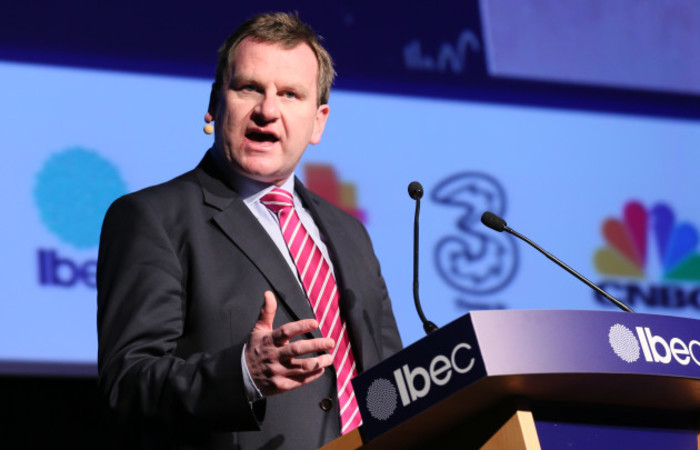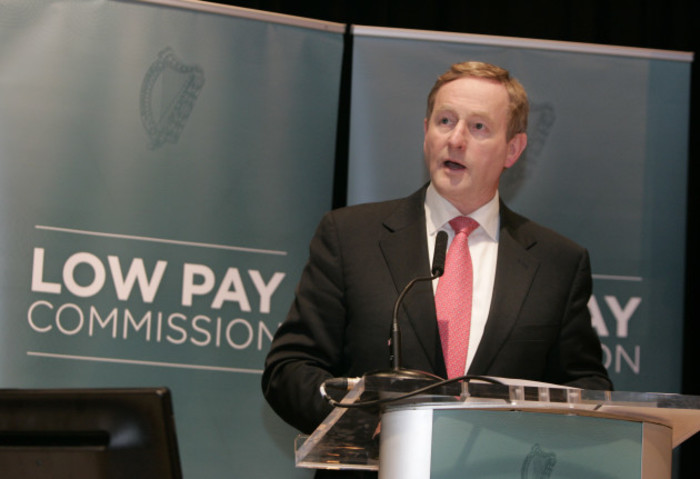The head of Ireland's most influential employer group says the living wage is 'ridiculous'
Ibec’s chief believes lifting wages across the board won’t solve problems like housing affordability.
THE HEAD OF Ireland’s largest and most influential business group has moved to quash efforts to introduce a national ‘living wage’, adding that it has “no place at the enterprise level”.
Speaking at the first Ibec manufacturing conference today, the lobby group’s chief executive, Danny McCoy, said that while companies should provide a fair wage to employees, the concept of a living wage is flawed.
“Productivity and wages must be competitive. To separate our wages from productivity would be a disaster,” he said.
Ireland’s largest unions have been pushing for a so-called living wage of €11.50 per hour to replace the current minimum wage, which was increased to €9.15 at the start of the year.
However McCoy said that the idea of employers having to provide a fixed living wage that failed to take into account individual circumstances was “frankly ridiculous”.
“You feel very harsh in saying that business is not for a living wage; business is for a wage that provides people to live. That’s a different concept.”
He said a living wage wouldn’t allow for varied situations, such as that of a worker in Dublin compared to one living in the west of Ireland.
 Ibec CEO Danny McCoy
Ibec CEO Danny McCoy
Living wage push
The government has already committed to raising the minimum wage to €10.50 an hour over the next five years, but the Low Pay Commission has been under pressure to recommend further increases. Ireland currently has the second-highest minimum wage in the EU.
Several employers have already voluntarily introduced the floor pay rate, including SSE, Lidl and Ikea.

Despite the living wage push, McCoy said the concept was flawed and that it would not solve issues such as Ireland’s housing crisis, in which the shortage of supply had left many struggling to pay rising rents.
“What is crucial is that wage increases are not part of the solution to this problem. Wage increases are for productivity that is delivered at the workplace,” he said.
“Circumstances of individuals in the workplace are important to employers. They may have concerns about the society that workers are living in, but that cannot be reflected in the wage rate.”
 Taoiseach Enda Kenny
Taoiseach Enda Kenny
Recent research released by the ESRI said raising the minimum wage would do little to lift Irish households out of poverty as the vast majority of low-paid workers came from relatively well-off homes.
McCoy said the individual workers’ circumstances was “not a workplace issue” and that meant that concepts like the living wage “clearly have no place at the enterprise level”.
“While people will rightly look for higher wages because they have concerns for rents and housing, it is exactly the wrong place because that will undermine the capacity to deliver the jobs and create sustainability in society,” he said.






